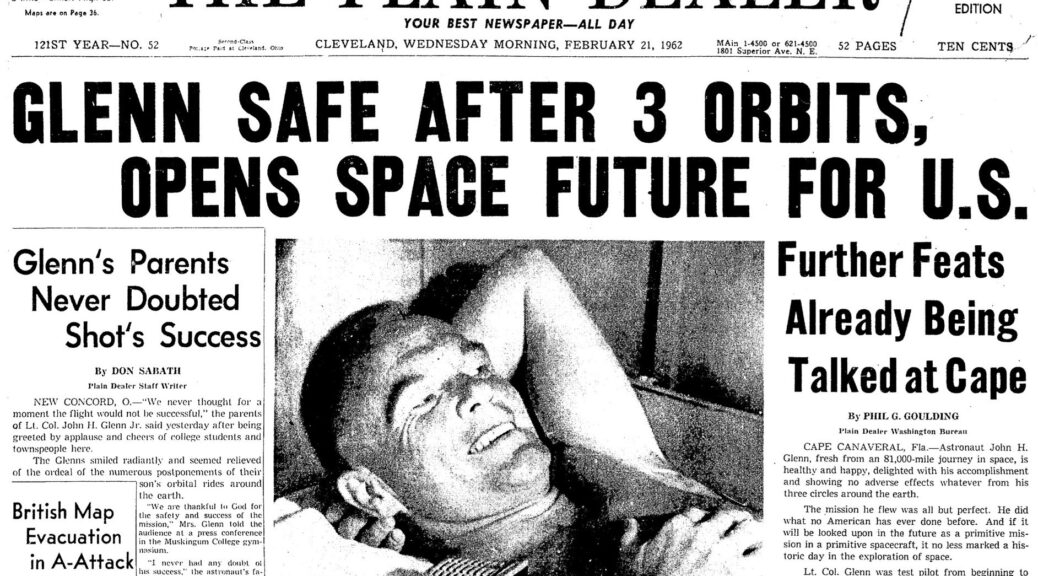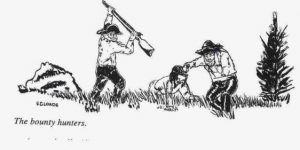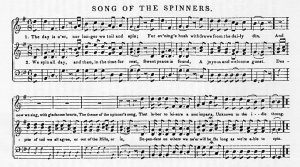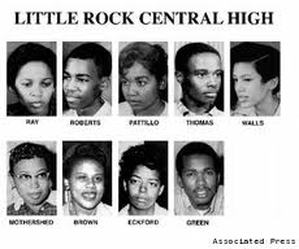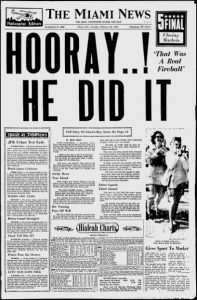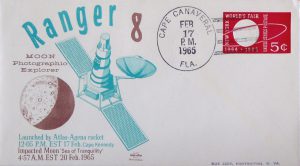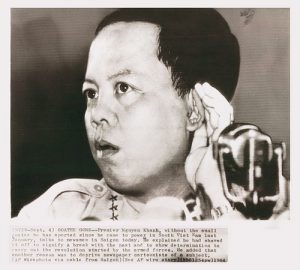February 20 Peace Love Art Activism
Native Americans
Father Rale’s War
February 20, 1725: part of Father Rale’s War—or the war between the Abenaki and the New Englanders—a group of 88 scalp hunters led by John Lovewell attacked a band of Abenaki Indians living in a wigwam near Wakefield, New Hampshire. State-sponsored programs that offered rangers payments for Indian scalps motivated the men. They tracked the Abenaki for 11 days then opened fire near midnight on February 20.
Lovewell’s posse killed and scalped 10 men and received a bounty of 100 British pounds per scalp. (from Battles of the Northeast site)
US Constitution & Native Americans
In 1789: US Constitution and references to Native Americans/Indians:
- Article 1 Section 3: 3: Representatives and direct Taxes shall be apportioned among the several States which may be included within this Union, according to their respective Numbers, which shall be determined by adding to the whole Number of free Persons, including those bound to Service for a Term of Years, and excluding Indians not taxed. [Indians not counted in population]
- Article 1, Section 8: To regulate Commerce with foreign Nations, and among the several States, and with the Indian Tribes; [Indians are treated as a foreign group] (next NA, see February 27, 1803)
February 20 Peace Love Art Activism
Feminism
Deborah Samson
February 20, 1804: Paul Revere wrote to Massachusetts US Representative William Eustis on behalf of Deborah Samson. Revere requested that the US Congress grant her a military pension. This had never before been requested by or for a woman, but with her health failing and her family destitute, the money was greatly needed. Revere wrote, “I have been induced to enquire her situation, and character, since she quit the male habit, and soldiers uniform; for the more decent apparel of her own gender…humanity and justice obliges me to say, that every person with whom I have conversed about her, and it is not a few, speak of her as a woman with handsome talents, good morals, a dutiful wife, and an affectionate parent.” (see Samson for expanded story)
see National Women’s Hall of Fame for more
February 20, 1969: National Women’s Hall of Fame founded in Seneca Falls, New York. The museum’s location commemorates Elizabeth Cady Stanton and Lucretia Mott, two renowned leaders of the suffragette movement in the U.S. who organized the first Women’s Right Convention at Seneca Falls in 1848. Follow link above for more. (see Mar 21)
February 20 Peace Love Art Activism
Judicial Milestone
February 20, 1809: US Supreme Court Chief Justice John Marshall ruled in United States v. Peters that the legal power of the federal judiciary was greater than that of any individual state: “If the legislatures of the several states may, at will, annul the judgments of the courts of the United States, and destroy rights acquired under those judgments, the constitution itself becomes a solemn mockery; and the nation is deprived of the means of enforcing its laws by the instrumentality of its own tribunals.” (Constitutional Law Reporter article) (see March 20, 1816)
February 20 Peace Love Art Activism
US Labor History
Textile Workers Strike
February 20, 1834: responding to a 15 percent wage cut, women textile workers in Lowell, Mass., organized a “turn-out”—a strike—in protest. The action failed. One worker’s diary recounts a “stirring speech” of resistance by a co-worker, 11-year-old Harriet Hanson Robinson. (see November 1, 1835)
Dockworker Strike
February 20, 2015: negotiators reached a tentative contract covering West Coast dockworkers, likely ending a protracted labor dispute that snarled international trade at seaports handling about $1 trillion worth of cargo annually.
The breakthrough came after nine months of negotiations that turned contentious in the fall, when dockworkers and their employers began blaming each other for problems getting imports to consumers and exports overseas.
The five-year deal, confirmed by International Longshore and Warehouse Union spokesman Craig Merrilees, The 13,000-member union’s rank-and-file still had approve. They worked 29 ports from San Diego to Seattle that handle about one-quarter of all U.S. international trade, much of it with Asia. (see Mar 25)
February 20 Peace Love Art Activism
Immigration History
February 20, 1907: President Theodore Roosevelt signed the Immigration Act of 1907 which excluded “idiots, imbeciles, feeble-minded persons, epileptics, insane persons” from being admitted to the United States. (see Mar 2)
Cold War
Sen Joe McCarthy back tracks
February 20, 1950: Sen Joseph McCarthy gave a six hour speech on the floor of the Senate that lasts until midnight. However, he now claimed to have evidence of only 81 communists working in the State Department. (see Apr 10)
SEATO ends
February 20, 1976: after operating for 22 years, SEATO [the Southeast Asia Treaty Organization] concluded its final military exercise and quietly shut down. SEATO had been one of the bulwarks of America’s Cold War policies in Asia, but the Vietnam War did much to destroy its cohesiveness and question its effectiveness. [NYT article] (see March 24, 1977)
February 20 Peace Love Art Activism
Fourth Amendment
February 20, 1950: United States v. Rabinowitz the US Supreme Court held that warrantless searches immediately following an arrest to be constitutional. The decision overturned Trupiano v. United States (1948), which had banned such searches.
Police arrested Albert J. Rabinowitz in his office on February 16, 1943 for selling forged US postage stamps to an undercover federal officer. Federal agents then conducted a warrantless, ninety-minute search of the office, finding an additional 573 forged stamps. Rabinowitz unsuccessfully moved to exclude this evidence from his subsequent trial, but the motion was denied. He was convicted, but a US Court of Appeals later reversed the verdict, ruling that his rights under the Fourth Amendment to the United States Constitution had been violated.
The US Supreme Court reversed the Appeals Court ruling in a 5-3 decision. Writing for the majority, Justice Sherman Minton wrote that only “unreasonable” searches were banned under the Fourth Amendment; searching the office of a suspected forger at the site of his lawful arrest was held to be reasonable. (see November 13, 1951)
February 20 Peace Love Art Activism
BLACK HISTORY
School Desegregation
February 20, 1958: five months after the integration crisis involving the Little Rock Nine, the Little Rock, Arkansas school board filed suit in the US District Court for the Eastern District of Arkansas, urging suspension of its plan of desegregation. They alleged that public hostility to desegregation and that the opposition of Governor Orval Faubus and the state legislature created an intolerable and chaotic situation. (BH, see Mar 28; SD, see Sept 12)
Alcorn A & M
February 20, 1968: Mississippi State troopers used tear gas and clubs to break up a student demonstration at Alcorn A & M (now Alcorn State University) in Lorman, Miss. Students had opposed the dismissal of three students who had passed out campaign literature in support of congressional candidate Charles Evers. (see Feb 29)
Race Revolt
February 20, 1987: in Tampa, FL, violence broke out for a second night in a mostly black neighborhood where a melee followed the death of a young black man subdued by a white officer using a chokehold.
Isolated groups of roaming youths broke windows with stones and bottles, and seven people were arrested, said Police Capt. R. W. B. Seal
Officials said the violence was less severe than the previous night, when stores were looted, car and trash fires were set and stones were hurled at the police after a crowd of 200 people gathered.
”It’s a war zone down there,” said Bob Gilder, former president of the Tampa chapter of the National Association for the Advancement of Colored People. He said the disturbance had been touched off by the death Wednesday (Feb 18) of 23-year-old Melvin Eugene Hair. Mr. Hair reportedly threatened four people with a knife and attacked a police officer, who then applied the choke hold. The officer, David D’Agresta, 25, has been placed on administrative leave with pay pending an investigation into Mr. Hair’s death. (NYT article) (see BH, see Dec 21; RR, see January 16, 1989)
February 20 Peace Love Art Activism
February 20 Music et al
Wonderland by Night
February 20 – March 5, 1961: Bert Kaempfert’s Wonderland by Night returns to Billboard #1 album.
This Diamond Ring
February 20 – March 5, 1965: “This Diamond Ring” by Gary Lewis and the Playboys #1 on the Billboard Hot 100. Al Kooper was one of the composers.
February 20 Peace Love Art Activism
Space Race
John Glenn
February 20, 1962: John Glenn orbited the Earth three times, becoming the first American to do so. [NASA article] (see Apr 24)
Ranger 8
February 20, 1965: the Ranger 8 spacecraft crashed on the moon after sending back thousands of pictures of the lunar surface (NASA article). (see Mar 18)
February 20 Peace Love Art Activism
Vietnam
South Vietnam Leadership
February 20, 1965: Gen Nguyen Khanh was able to get troops to take over from the insurgents without any resistance. Meanwhile, Air Vice Marshal Nguyen Cao Ky met with the dissident officers and agreed to their demand for the dismissal of Khanh. (V & SVL, see Feb 21)
Tet Offensive
February 20, 1968: as a result of the Tet Offensive, the U.S. Senate Foreign Relations Committee began hearings to investigate American policy in Vietnam. At issue was whether the administration had provided Congress with truthful data at the time it was seeking passage of the Tonkin Gulf Resolution in August 1964, which had considerably broadened the president’s war-making authority in Southeast Asia. (see Feb 25)
Chicago 8
February 20, 1970: Abbie Hoffman, Jerry Rubin, David Dellinger, Tom Hayden, and Rennie Davis were each fined $5,000 and sentenced to five years in prison. At sentencing, Abbie Hoffman recommended that the judge try LSD, offering to set him up with a dealer he knew in Florida. [Newspapers site article] (Chi8, see May 3, 1971; Vietnam, see Feb 21)
February 20 Peace Love Art Activism
Symbionese Liberation Army
February 20, 1974: Patty Hearst’s 20th birthday. On a third audio tape, DeFreeze repeats his earlier statement that Hearst’s contribution should reflect both Hearst’s capabilities and the need of the people. He demands that the amount be increased to $6 million. He also demands that Hearst prove that he will stop committing “crimes” against “the people.” (see SLA for expanded story)
February 20 Peace Love Art Activism
FREE SPEECH
February 20, 1974: the Supreme Court issued a 6-3 decision stating that the case of Lewis v. City Of New Orleans should be reversed and remanded and declaring a municipal/other local ordinance as unconstitutional. The judgment rested on the Court’s authority over judicial review at the state level.
The Louisiana Supreme Court had upheld a statute making it unlawful and a breach of the peace “for any person wantonly to curse or revile or to use obscene or opprobrious language toward or with reference to” any city police officer serving in the line of duty, maintaining that it only prohibited fighting words. (see June 25)
February 20 Peace Love Art Activism
Oklahoma City Explosion
February 20, 1996: the Court granted a change of venue and ordered that the case be transferred from Oklahoma City to the U.S. District Court in Denver, CO. (see June 2, 1997)
February 20 Peace Love Art Activism
CLINTON IMPEACHMENT
February 20, 1998: Lewinsky attorney Bill Ginsburg said the former intern met with Vernon Jordan much earlier than was being reported. (see Clinton for expanded story)
February 20 Peace Love Art Activism
LGBTQ
February 20, 2015: Texas Attorney General Ken Paxton asked the State Supreme Court to revoke the marriage license issued a day earlier to two women, arguing that the move violated a decade-old state ban on same-sex marriage and could cause legal chaos. [NYT article] (see Feb 21)
February 20 Peace Love Art Activism
Crime and Punishment
February 20, 2019: in Timbs v Indiana, the US Supreme Court unanimously sided with a small time drug offender in Indiana whose $42,000 Land Rover was seized by law enforcement officials. The Court ruled that the Constitution places limits on civil forfeiture laws that allow states and localities to take and keep private property used to commit crimes.
Civil forfeiture was a popular way to raise revenue, and its use had been the subject of widespread criticism across the political spectrum.
The Supreme Court had ruled (see Austin v US, June 28, 1993) that the Eighth Amendment, which bars “excessive fines,” limits the ability of the federal government to seize property.
On this date, the court ruled that the clause also applies to the states. (see June 17)
February 20 Peace Love Art Activism
Nuclear/Chemical News
February 20, 2019: authorities arrested three European lawmakers after they broke into an air base in Belgium to protest the stockpiling of American nuclear weapons there.
The three politicians—Molly Scott Cato of the U.K., Michele Rivasi of France and Tilly Metz of Luxembourg, all members of the European Parliament (MEPs) representing green parties—broke into the Kleine Brogel base in eastern Belgium on Wednesday and unfurled a banner on a runway used by F-16 fighter jets, The Guardian reported.
The three had been protesting the base’s stockpiling of American B61 nuclear bombs, of which there were believed to be between 10 and 20 at the facility, according to the Nuclear Threat Initiative. All were detained on the runway.
Another 12 activists—including a fourth Green MEP Thomas Waitz from Austria—were arrested at a concurrent demonstration outside the base, the newspaper said. The other 12 were members of the Belgian peace group Agir Pour la Paix—Act for Peace. Several of those detained had tried to climb over the fence surrounding the dual-runway base. (see Feb 28)
February 20 Peace Love Art Activism
Women’s Health
February 20, 2020: CBS News reported that according to a spokesperson for the Center for Reproductive Rights, Mississippi’s controversial “fetal heartbeat” ban, an effective six-week ban on abortion, was just struck down by a federal judge, The Center is the law firm that challenged the state law.
A three-judge panel of the Fifth Circuit Court of Appeals issued its decision writing, “[A]ll agree that cardiac activity can be detected well before the fetus is viable. That dooms the law. If a ban on abortion after 15 weeks is unconstitutional, then it follows that a ban on abortion at an earlier stage of pregnancy is also unconstitutional.”
The decision temporarily will block the law from going into effect, upholding a lower court’s decision from May 2019. In December, the Fifth Circuit also struck down a 15-week abortion ban passed by Mississippi. (next WH, see Feb 24)
February 20 Peace Love Art Activism
Japanese Internment Camps
February 20, 2020: Hawaii News Now reported that the California Assembly apologized for discriminating against Japanese Americans and helping the U.S. government send them to internment camps during World War II.
The Assembly unanimously passed the resolution as several former internees and their families looked on. After the votes, lawmakers gathered at the entrance of the chamber to hug and shake hands with victims, including 96-year-old Kiyo Sato.
The California resolution said anti-Japanese sentiment began in California as early as 1913, when the state passed the Alien Land Law, targeting Japanese farmers who were perceived as a threat by some in the massive agricultural industry. Seven years later, the state barred anyone with Japanese ancestry from buying farmland. (next JIC see Feb 26, or see Internment for expanded chronology)

